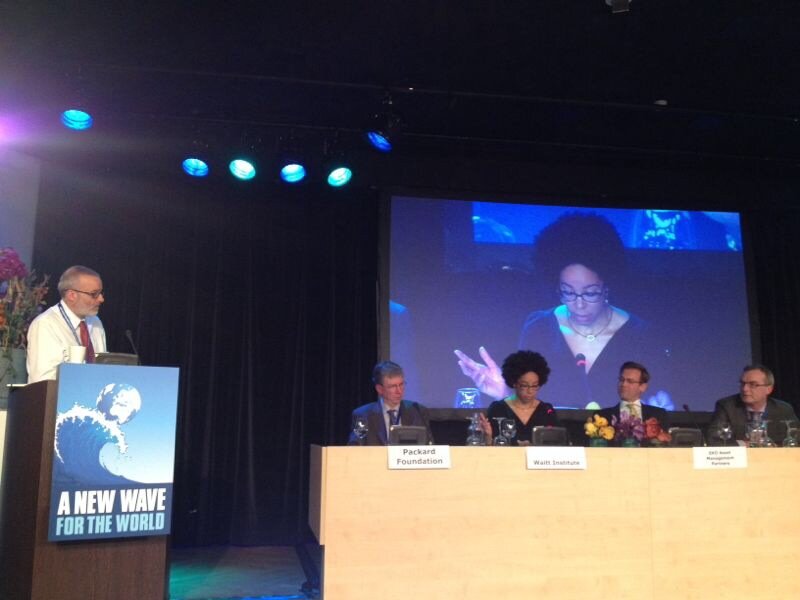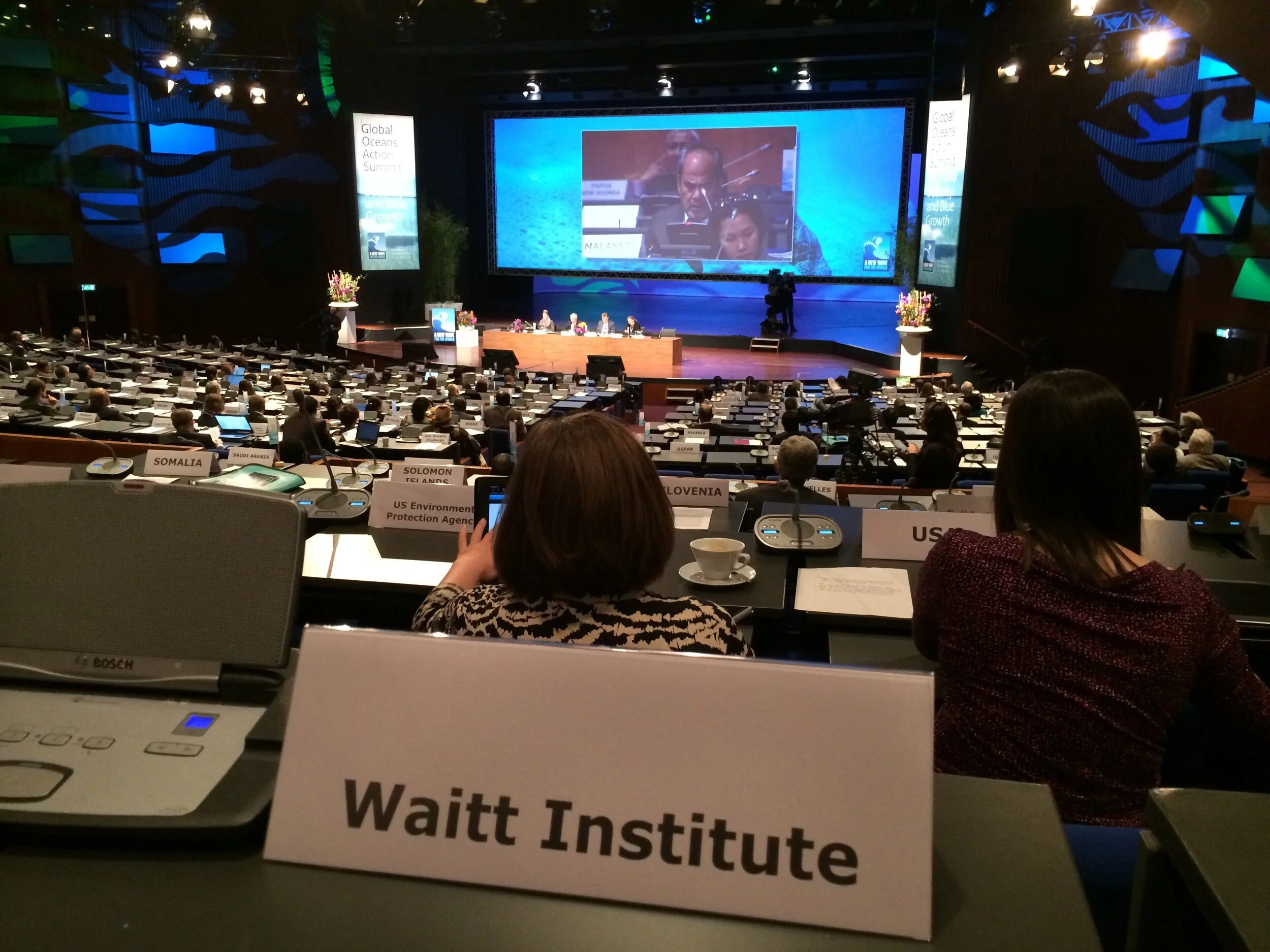Priority Investments for Sustainable Fisheries
Originally published on the (now archived) National Geographic blog.
April 29, 2014
Proposing some key actions for financing sustainable fisheries.
I had the honor of participating in the Global Ocean Action Summit in The Hague last week. This small conference of diplomats, NGO leaders, and philanthropy and industry representatives came together to define discrete actions for how to achieve food security and blue growth.
Broad focal areas included improving traceability, transparency, information sharing, and collaboration to address challenges such as investing in small-scale fisheries and preventing illegal fishing. For more on the official policy priorities and the new international commitments that came out of the Summit, see the press release and full official report.
I spoke on the “Banking on Sustainable Fisheries and Healthy Ecosystems” panel, along with Walt Reid (Packard Foundation), Aldin Hillbrand (Royal Ahold), Trip O’Shea (EKO Asset Management), and Thomas Ursem (Rabobank), chaired by Charles Goddard (The Economist Intelligence Unit).
Based on our panel’s conversation, here are a few concrete actions I think would be good next steps for pursuing sustainable fisheries:
Develop a financial mechanism to give no-take marine reserves economic credit for the role they play in supporting sustainable fisheries. Per the “key action” resulting from my comments:
- “Explore financial mechanisms for how marine reserves can be valued for their contributions to food security and economy, so that communities can benefit from their support of effective marine reserves. For example, credits in fisheries certifications and as a de-risking mechanism for investments.”
Create a repository for success stories in ocean management. It would be very helpful for the ocean community to have a central place to learn about novel pilot projects, and glean knowledge on the best practices and serendipity that led to success. Hopefully this would lead to increased availability of financing for replicating these best practices and successes. The work of two existing organizations could be built upon to achieve this:
- The Smithsonian Ocean Portal is building a collection of “Solutions and Success Stories"
- The Marine and Oceanic Sustainability Foundation is “documenting how projects are carried out and disseminating project information so that they can be replicated in other areas around the globe.”
Invest in changing regulatory structures, as well as in monitoring and enforcement. It is important to invest in aspects necessary for sustainable fisheries but where returns may be more difficult to realize. That includes investment in:
- Research, development, and implementation of monitoring and enforcement technologies,
- Changing the rules of the game (e.g., legal approaches to eliminating destructive fishing practices and perverse subsidies of $30+ billion a year that support unsustainable fishing (and see the “Sunken Billions” report from the UN FAO)).
My view in the main Summit hall. Downside of the Waitt name when seating is alphabetized.
There is a role the World Bank’s Global Partnership for Oceans’ burgeoning Ocean Investors Roundtable can play in facilitating each of these recommended actions. That entity could serve as a much-needed clearinghouse for matching concepts and dollars for sustainable ocean use.
Of course, the to-do list for improving ocean policies and management remains long, but it was encouraging to see public, private, and NGO leaders productively grapple with prioritizing urgent needs. I am often disappointed by the seemingly endless string of conferences, but agree with Dr. Ove Hough-Goldberg (see his post-Summit blog) that all the recent high-level ocean conferences may actually be building momentum that will tip us toward sustainability.
Notes: Sincere thank you to the World bank for the speaking invitation. The Summit was organized by the Government of The Netherlands, with the UN Food and Agriculture Organization (FAO), the World Bank and the Governments of Grenada, Indonesia, Mauritius, Norway, and the US. For lots of interesting discussion coming out of the Summit and on ocean management in general, follow #OceanAction on Twitter.


